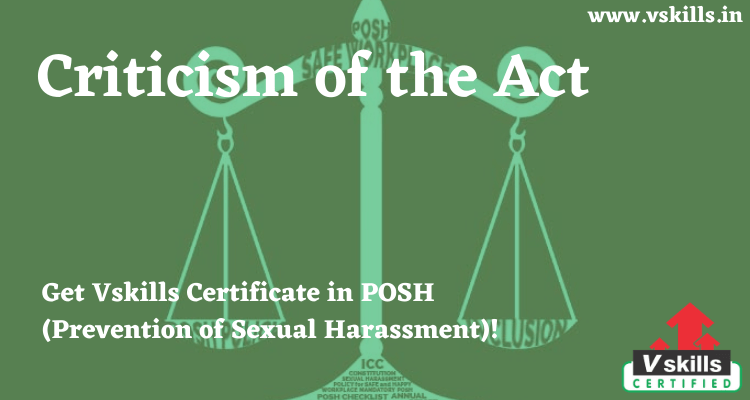
As we read in the previous sections, The Sexual Harassment of Women at Workplace (Prevention, Prohibition and Redressal) Act, 2013 (“POSH Act“) was enacted as comprehensive legislation to provide a safe, secure and enabling environment, free from sexual harassment to every woman. The Act propelled India to a select league of nations that have outlawed workplace sexual harassment through national legislation. But there’s more to it.
Criticism of the Act– Brinda Karat, serving in the Rajya Sabha as a Communist Party of India (Marxist) member for West Bengal initially complained that the Bill does not cover women in the armed forces and excludes women agricultural workers, “a gross injustice to agricultural workers who are the single largest female component of the workforce in the country.” However, the final bill includes the clause “No woman shall be subjected to sexual harassment at any workplace” (clause 3.1), and is considered to have addressed those concerns.
As we are talking about the Criticism of the Act- Manoj Mitta of The Times of India complained that Bill does not protect men, saying it “is based on the premise that only female employees needed to be safeguarded.” Nishith Desai Associates, a law group, wrote a detailed analysis that included concerns about the role of the employer in sexual harassment cases.
Compliance with this statute has so far been left to the vagaries of the employers and the government has not taken any significant step to enforce the law so far. For example, 6 months after the law came into effect, the state in UP remained dreadful as women could not participate in the workforce due to sexual harassment.
Some tribunals have commented on the constitutionality of some of the provisions of the statute, especially section 4 and Section 7.


